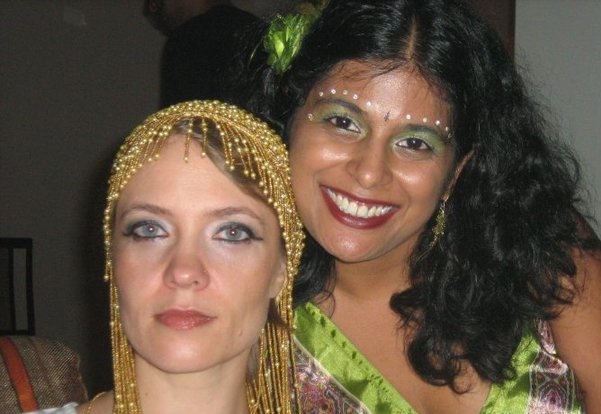Experiencing something upsetting or traumatic, whether in our work or personal life, immediately makes many people recoil and isolate themselves. We suck it up. We decide it’s better to be on our own. No connection means not getting hurt. We’re protecting ourselves.
The more I learn about emotion, memory and suffering, the more I realize that the idea of isolating yourself to protect yourself just makes you more miserable, angry & frustrated. It’s a cycle that perpetuates itself.
But the alternative can be overwhelming. To connect requires you to be vulnerable – vulnerable to the exact hurt that has caused you to isolate yourself.
Here’s the catch: if you close yourself off to pain, you also close yourself off to love and connection. A wise, dear friend once told me this when I was experiencing overwhelming emotional and physical pain (Thanks Brig!).
Here’s the other catch: If you don’t have the tools to keep you grounded and safe as you reach out for love (acceptance, support etc.), you will get hurt again and it will be painful.
Acknowledge you don’t have the skills – at least to yourself. To do otherwise won’t help.
Realize, as well, that many of us don’t have the skills to keep us grounded and safe.
We’re taught to read, write and count but not how to accept feelings and emotions, listen to each other’s pain without casting judgment, communicate empathetically or communicate clearly on what our expectations and boundaries are.
If you want to protect yourself from hurt you need to connect. Not isolate.
You need a support system. It’s one of the ways to be resilient in the face of work and personal challenges.
Here’s how it works: At the core of this support system is you. If you are not there for you no one else can be there for you. The buy-in to take care and support yourself needs to come from within. You need to be your best friend. Around this core is your community. The one that supports you in all the imaginable and unimaginable ways you will need.
How do you get this support system?
There are 3 steps:
- It starts with cultivating self-awareness, which requires curiosity, acknowledgment and acceptance of yourself.
- A by-product of this process is clarity on what your wants and needs are as well as your boundaries. In order to have a support system you need to communicate what you want and what you don’t want.
- You also need to learn how to communicate with others. Again, you will need to be curious, actively listen, acknowledge what is being said and be clear of your intentions, expectations and boundaries.
Feeling overwhelmed at the task? Yeah, I felt the same way. I still do from time to time. The difference now is I know. I know that using these tools keep me from feeling miserable and powerless. As scary and as difficult as it is to practice these skills I do so anyway because I reap the rewards.
I still have my challenges in my personal and professional life but how I react to them has changed.
I am more compassionate to myself and others. The result is trust and relationships that support me and take my work to another level of making a positive impact.
I am also incredibly clear on what my expectations and boundaries are. Instead of feeling under-valued and dismissed, I have a voice and I use it. I will not be shut down or told my perspective doesn’t matter. I use my energy more wisely. Trying to be heard by people who don’t want to listen is pointless. Flowing around them like a river moving around obstructions is how I choose to work now. I feel empowered instead of defeated!
Before you meet your next life or work challenge, take the time to build your support system.
How?
Reading this post is a first step. The next step is to take action.
Signing up for my toolkit is one way to do this. It’s simple and it’s free. You sign-up here and you receive your starter kit as well as future posts.
This path may lead you to seek out training and coaching on how to build your relationship management skills to improve project implementation; learn how to address power dynamics, conflict and difficult conversations; avoid burn-out and improve your resilience skills click here for more info & to sign-up for a free needs assessment.
A nod of respect from me to you.
You are taking the time and investing your energy in something worthwhile;
To be empowered to make a difference.
N.B.
What the story behind the picture above? Rachel is a soul sister and was my support system when we worked and lived overseas. She still is! Namaste Rachel.



I really like what you write, it resonates! – Thanks!